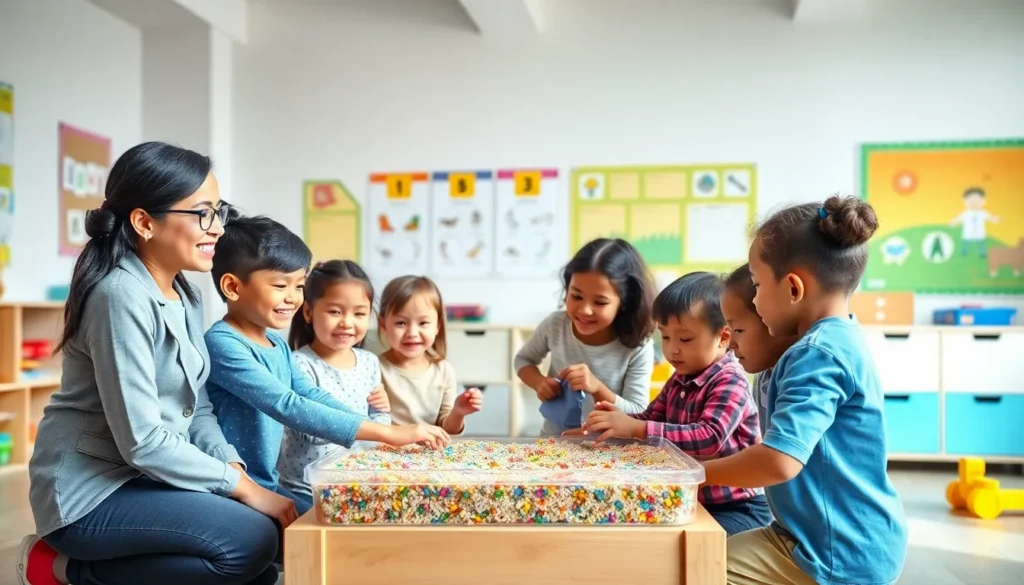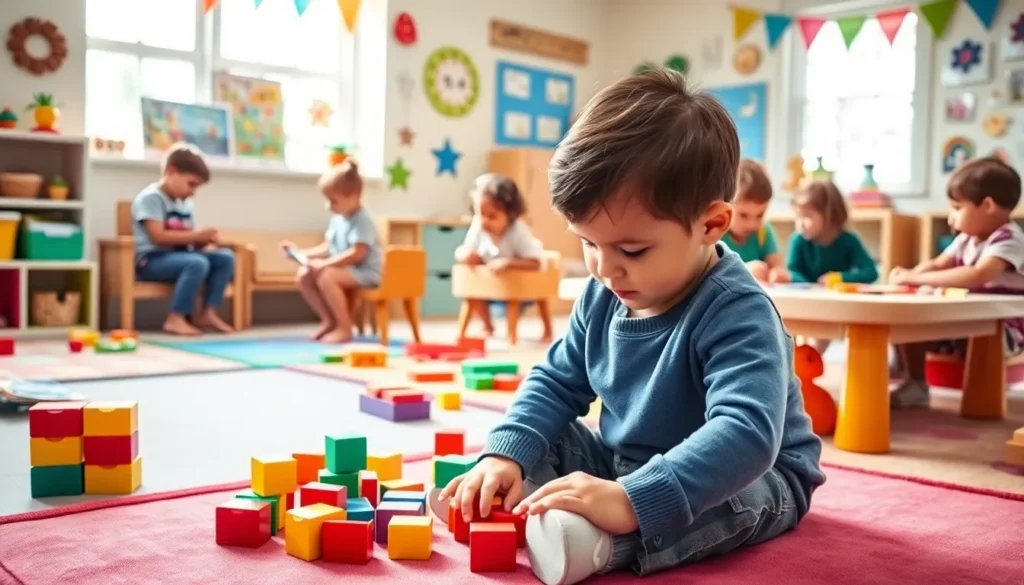When it comes to child development, you might think of blocks, dolls, and endless rounds of pretend play. But play isn’t just a delightful way to pass the time: it’s actually a cornerstone of early intervention strategies. Think of play as the multitool of childhood development, teaching kids everything from motor skills to social cues, all while making it look like fun. In this text, we’ll jump into the world of play early intervention. You’ll learn what it is, why it’s important, and how to put it into action. So, buckle up, and let’s play.
Table of Contents
ToggleWhat Is Play Early Intervention?

Play early intervention refers to strategies and practices designed to support children’s development through guided play experiences. This approach taps into the natural inclination children have to play, utilizing it as a vehicle for learning and growth. The idea is simple: by engaging children in play, caregivers and educators can help address developmental delays or challenges before they impact future learning. Essentially, play early intervention uses play as an effective means of delivering educational content, social skills, and emotional support. It’s not simply about recreational time: it’s about creating structured, purposeful interactions that promote development in areas like communication, cognitive skills, and emotional regulation.
Importance of Play in Development
Play is fundamental to healthy child development for several compelling reasons. First, it encourages creativity. When kids engage in imaginative play, they explore different scenarios, problem-solve, and develop critical thinking skills. Second, play enhances social abilities. Group activities like tag or building a fort foster teamwork and cooperation, teaching kids to navigate relationships and share with others. Importantly, play is a means for emotional expression. Children can act out their feelings through role-playing, helping them understand complex emotions and develop resilience. Overall, the role of play in child development cannot be overstated: it forms the bedrock upon which much learning occurs.
Key Principles of Play Early Intervention
Effective play early intervention is guided by several key principles:
- Child-Centered Approach: The focus should always be on the child’s interests and preferences. When children are engaged in activities that they enjoy, learning flows more naturally.
- Developmentally Appropriate Practices: Activities should match the child’s developmental stage. This ensures that they are challenged but not overwhelmed, allowing for optimal growth.
- Interactive Play: Encouraging adult involvement enriches the play experience. Adults can model behaviors and offer guidance, enhancing learning opportunities without dominating the experience.
- Collaborative Learning: This principle emphasizes the importance of working with families and caregivers. Engaging them ensures that the interventions extend beyond the classroom and into the home.
Methods and Strategies for Implementation
To effectively carry out play early intervention, a variety of methods and strategies can be utilized. 1. Play-Based Learning Activities: Incorporate interactive games that promote learning objectives, whether it be through educational board games, storytelling, or even outdoor activities.
2. Themed Play Sessions: Organize activities around specific themes, such as “Garden Day” to teach about nature and responsibility, while also honing fine motor skills. 3. Sensory Play: Use sensory bins filled with various materials like rice, sand, or water. These items can stimulate exploratory behavior and encourage cognitive development as children engage with different textures.
Collaborating with Families and Caregivers
Collaboration with families and caregivers enhances the effectiveness of play early intervention. This partnership creates continuity in the child’s learning experience. Educators and therapists should aim to keep families informed about interventions and suggest activities that parents can do at home. Parent workshops can also provide guidance, allowing caregivers to replicate meaningful play activities in their daily routines. By fostering a support system, children benefit from a cohesive approach to learning, which reinforces their development.
Monitoring Progress and Outcomes
Monitoring progress is essential for evaluating the effectiveness of play early intervention strategies. Regular assessments can help identify individual developmental milestones and guide the intervention process. Tracking both qualitative and quantitative data allows teachers and therapists to adjust their methods to better suit the needs of the child. This can include observations during play sessions, structured evaluations, and feedback from families about changes they observe at home. All of this data culminates in a more tailored approach that maximizes developmental outcomes.
Challenges and Considerations
While the benefits of play early intervention are immense, some challenges and considerations must be acknowledged. One challenge is resource availability, many programs face budget constraints that may limit access to materials or trained personnel. Also, not all caregivers may immediately recognize the importance of play in education, necessitating education about its profound effects. Finally, cultural differences in play styles can also impact how interventions are received or implemented. Addressing these issues requires a flexible and adaptive approach, ensuring that interventions are both effective and inclusive.




